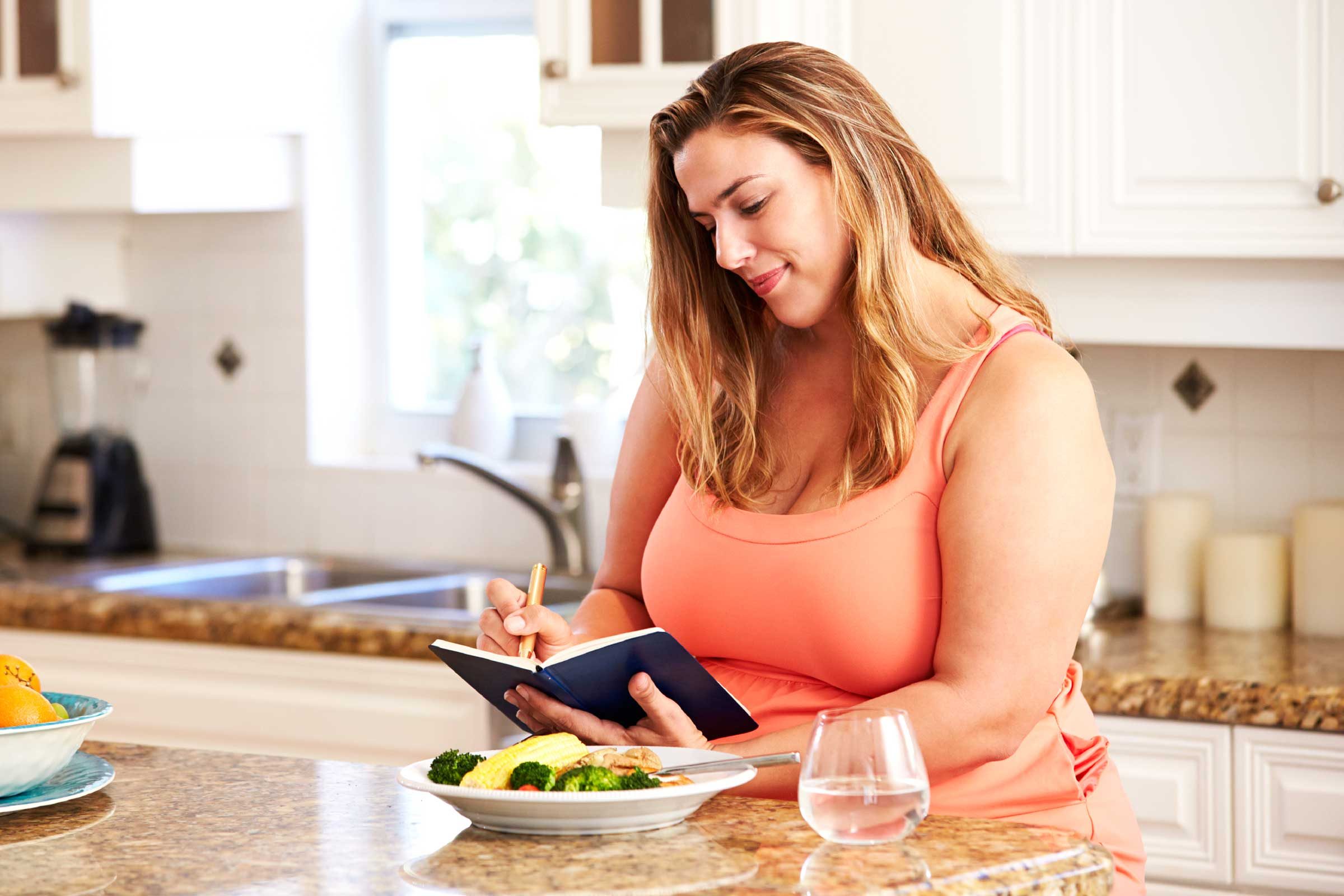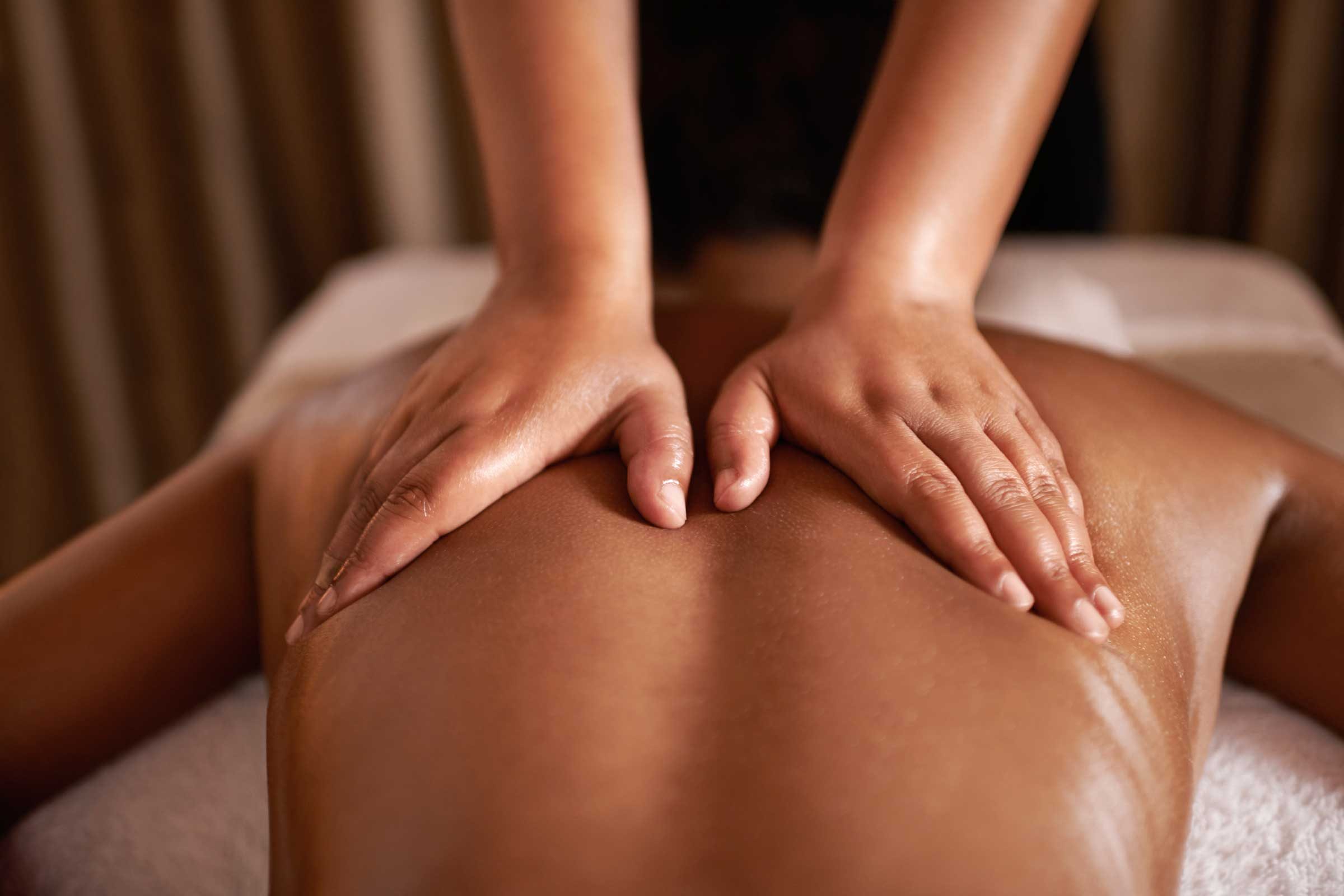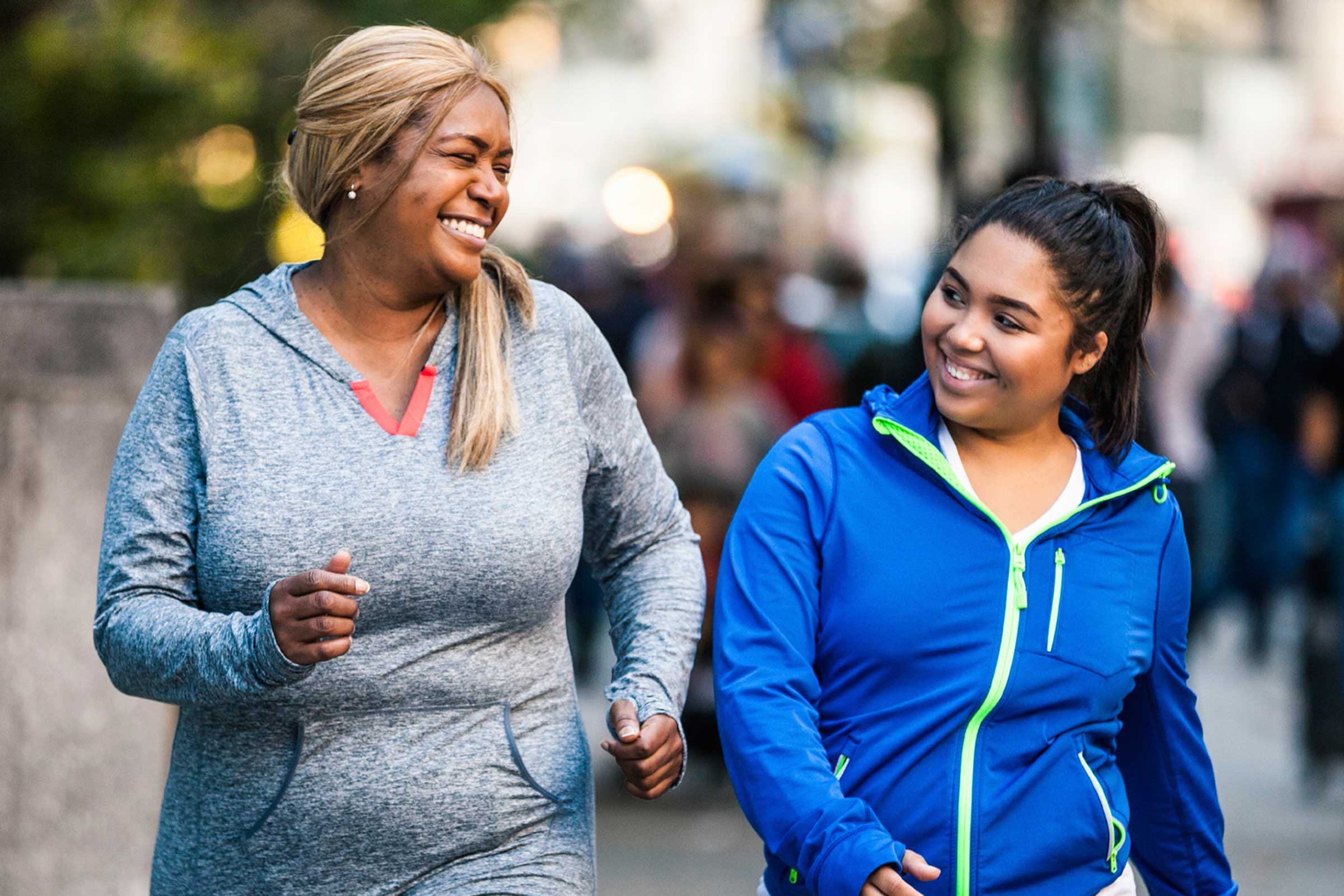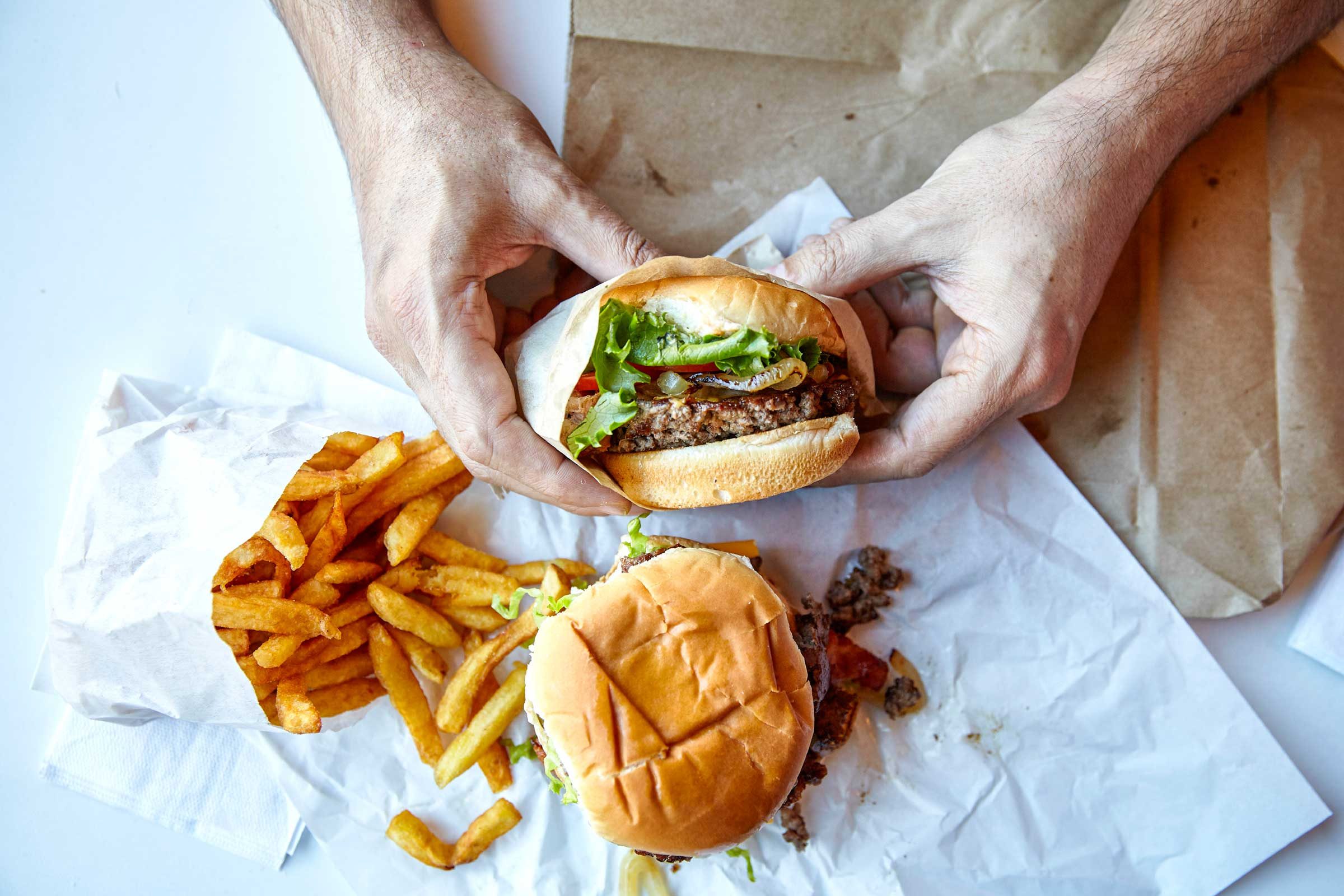![[feature]](https://blogger.googleusercontent.com/img/b/R29vZ2xl/AVvXsEhzqqJ-lAeldH9W1wdaLHfmAa2i4AgVy_JP3BEvub45bzcY2XJfSklIsZzWCHnkeW-YVWvuAyb7OTy19MpHL66n2XvCYkeU0wb79RRFbywddfhcNJjUdlMjuFmNvlharhQzHzQyiMrPh1Q/s1600/two-women-talking-1.jpg)
Lay the proper groundwork before you begin a new diet to ensure weight-loss success.
Jot it all down
 |
Before you start overhauling your eating
habits, record everything you drink and eat. Many apps and websites can
help or you can use tried-and-true pen and paper. Note trouble spots
that you’ll need to address, like that mid-afternoon snack. This whole
process will jump-start weight loss by making you feel more accountable
for what you eat every day. “This is the single most important thing you
can do when you’re watching your calories,” says Paige Waehner, a
certified personal trainer and author of The About.com Guide to Getting in Shape. “I
have so many clients who think they're eating healthy, but having to
write down every bite makes you aware of those extra calories we eat
without even realizing it. Just an extra handful of nuts could cost you
more than 100 calories.” Need major weight-loss motivation? Try out
these proven weight loss tips used by the folks on The Biggest Loser.
Blab to the world
 |
Don’t keep your weight-loss goals a secret.
Better your chances of quick weight loss (and long-term diet success) by
spreading the word to friends and family about your new diet. It will
help motivate you and increase your accountability. “Almost no one
succeeds without support from the people around them,” says Malia Frey,
MA, CPT, CHC, the Weight Loss Expert at About.com.
“Asking for help is the most important part of your weight-loss
program.” Just be sure to tell the right people. “Share with people who
are going to encourage you, not hold you back,” says Jay Cardiello,
health strategist and star of ABC’s My Diet Is Better Than Yours.
You may also want to find a buddy with a similar goal. You can
encourage one another when times get tough, work out together, share
your progress, and swap advice. Don’t be counter-productive by comparing
your weight loss with that of your friend, such as questioning why
she’s losing weight faster than you.
[post_ads_2]
Purge your kitchen
 |
Review your food diary and toss any temptations
lurking in your kitchen. “Put some thought into what foods might be
your triggers,” says Phyl London,
a Level IV Master Trainer specializing in Pilates and Group Exercise
instruction who created Bodiphy®, a program that brings you through
Pilates, Barre, strength, and alignment training. “Chocolate and ice
cream can be in my house for days and I won’t overeat them,” says
London. “For me, I can’t have tortilla chips, pretzels, or pita chips in
the house. Those are the kinds of foods that I would overeat if I came
home tired from a long day at work.” Then restock with healthy fare like
vegetables, fruits, whole grains, lean meats, and low-fat dairy foods.
“Get creative when you set up your fridge,” says Frey. “Put healthy
low-calorie snacks in front so you’ll see them first when you open the
refrigerator door. Then put less healthy foods away in drawers and low
shelves so you see them less often.” You should always keep these seven healthy foods at the front of your fridge.
Map out your meals
 |
Proper planning could mean the difference
between sticking with your diet or bailing after a couple of weeks. On
Saturday afternoon, scan cookbooks, magazines, and websites to figure
out what healthy foods and recipes you’ll eat for the coming week. On
Sunday, grocery shop armed with a list. Then spend the rest of the
weekend doing food prep, like cooking/freezing meals or chopping up
vegetables. Plus, don't miss the 50 best healthy-eating tips of all time.
Plan a treat
 |
Maintain motivation by rewarding yourself. For
example, promise yourself that after you make it to the gym five times
in a week or lose five pounds, you’ll treat yourself to a nonfood reward
like a manicure, massage, or movie.
Set goals that are basically fail-proof
 |
You want specific, short- and long-term goals
that are attainable. That way you’re more likely to stick with your
diet. Don’t expect instant results like losing 20 pounds in a week. “I
tell people it takes four weeks to feel better, six week to see some
differences, and really a full eight weeks to see a lot of changes and
long-term results,” says London. Goals shouldn’t just focus on weight
loss, adds Waehner. “Set goals to work out a certain number of times a
week so you have something tangible to check off your to-do list,” she
says. “Seeing how many workouts you get in each week will motivate you
to keep going.” If you feel your motivation falling by the wayside,
recite these weight-loss motivation mantras to remember what you're working toward and get back on track.
[post_ads_2]
Whatever you do, don't binge
 |
You may try to get in that last bowl of Rocky
Road while you can. But it’s not a good idea to binge on unhealthy foods
right before you start a diet. It will only be counterproductive to
your success.
Talk with your healthcare provider
 |
Speak with your doctor about the best ways she
thinks you can lose weight. She can advise whether any of your health
conditions or medications may interfere with your ability to lose
weight. She could refer you to a nutritionist to help you make healthy
food choices or a trainer to help get your exercise plan on track. Find
out what your doctor wishes you to know about losing weight.
[post_ads_2]
Finally, sneak in exercise
 |
“Diet will only take you so far,” says Waehner.
“Eventually, you’ll reach a plateau and exercise is the best thing you
can do to boost your calorie burn.” Exercise helps you build lean muscle
tissue and lose more fat, which helps change your body composition,
Waehner adds. “Muscle is more metabolically active than fat. The more
you have, the more calories you burn all day long,” she says. “I
recommend that people just get more active,” says London. She suggests
to her clients that they take the stairs instead of the elevator, walk
to work if possible, ride their bike, play outdoors with their kids, or
walk the dog. Jennifer Giamo, a nutritionist, certified personal trainer
and founder of New York City-based Trainers in Transit, recommends
incorporating exercise into your workday. “Walk over to a coworker
instead of sending an email,” she says. Wear a fitness tracker to track
your steps, aiming for 10,000 non-exercise-related walking steps a day. Here are 16 ways you can lose weight just by walking.























